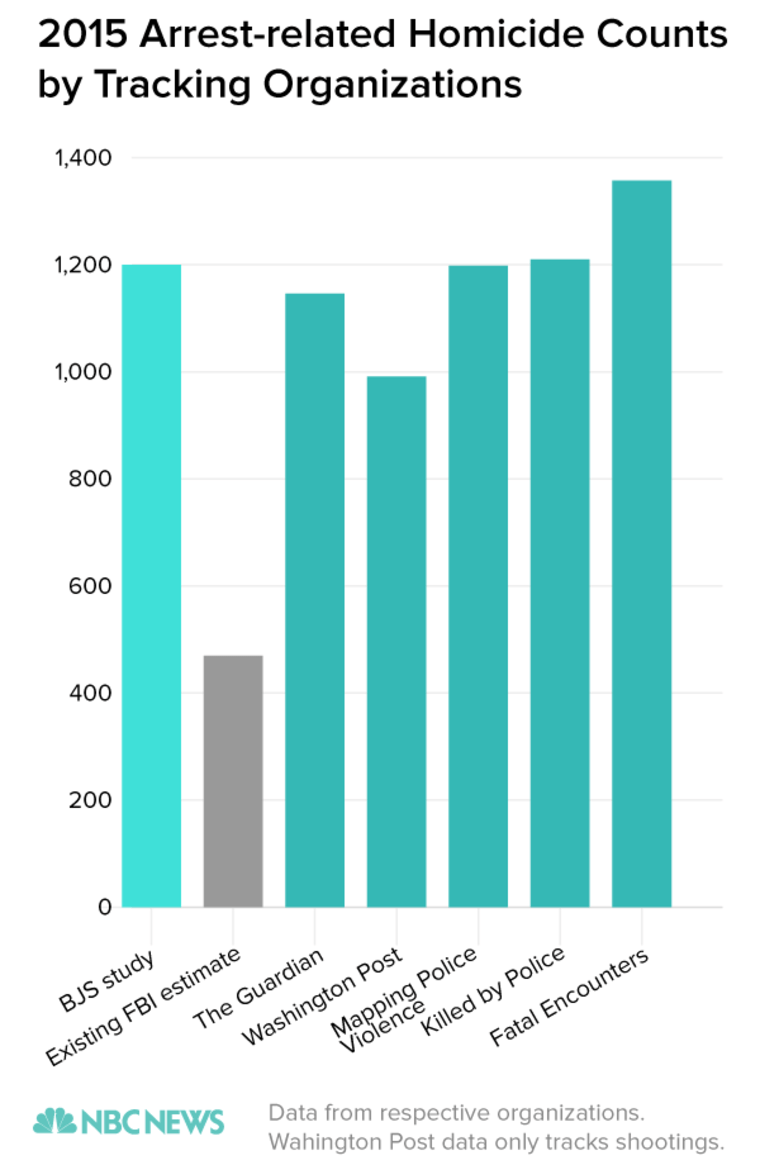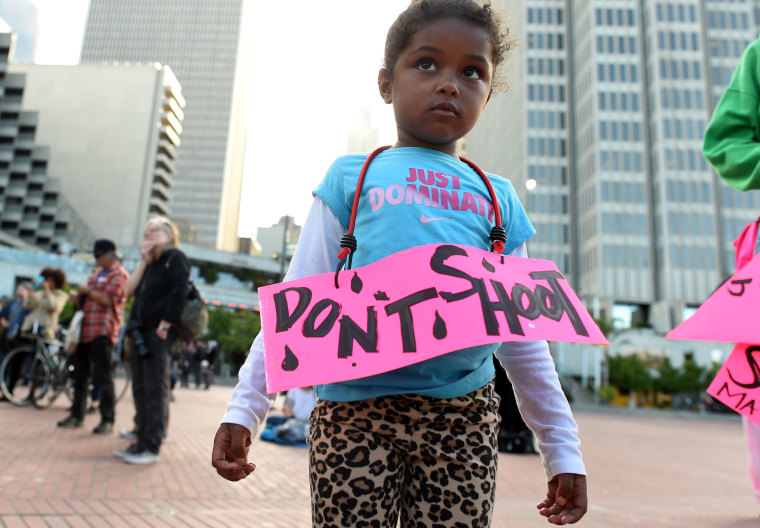A new government study into killings by police between June 2015 and May 2016 estimates that more than double the number of deaths occurred than commonly-used statistics from the FBI reported.
The study, conducted by the Bureau of Justice Statistics and RTI International, found that approximately 1200 homicides by police occurred in 2015, compared with the official count by the FBI of 442 homicides for the year.
As the below chart shows, the results of the study confirm independent analyses by major media organizations, which criminal justice researchers point to as evidence of oversight. The Washington Post and The Guardian, independent watchdogs and crowdsourcing efforts all run efforts parallel to the FBI's own data collection service, partly to draw attention to the issue of data collection.

The study sets a new standard for tracking arrest-related deaths in its methodology, which used media reports combined with follow-ups with local law enforcement and medical examiners and coroners' offices.
On Friday, following the report's release, the Department of Justice announced a proposal to improve data on police shootings that incorporated parts of the study focused on using media reports and follow-ups with law enforcement.
Testing that this approach could work was one of the hopes the study's authors. "The revised ... program methodology is designed to increase the reliability, validity, and comprehensiveness of the data collection," the study’s authors said in the report.
The report comes after years of calls by law enforcement officials and advocacy groups to overhaul federal data about arrest-related deaths — including by the FBI itself.
The ACLU said the report validates those calls.
"This report makes clear that the federal government still has work to do to get a good grasp on the number of people who are killed in custody," Kanya Bennett, legislative counsel at the ACLU’s Washington Legislative Office, told NBC News.
Related: Why Doesn't the Government Track Nationwide Police Use of Force?
Independent tracking databases have become critical both in driving change and in researching an accurate count of deaths.
Speaking at a private gathering in 2015, FBI director James Comey directly cited media analyses as an eyesore for the Bureau: “It is unacceptable that The Washington Post and the Guardian newspaper from the U.K. are becoming the lead source of information about violent encounters between police and civilians,” he said. The FBI did not respond to comment for this story.
The study's use of a multi-step system, however, made its findings carry more weight (and more expensive to conduct) than other efforts.
"It’s important to look at multiple sources when you’re identifying whether these deaths occurred at all," said Duren Banks, Ph.D., senior research criminologist at RTI and lead author of the study.
The existing system the government uses to track police killings, the FBI’s Supplementary Homicide Report, by contrast, is criticized for relying on an inconsistent and voluntary self-reporting system that leaves out many shootings and obscures the nature of an incident in others.
Efforts to replace the existing tracking system are underway, however.
The FBI is creating a replacement database, which the agency has said will launch as a pilot in 2017.
The Death in Custody Reporting Act, a law designed to improve the reporting of arrest-related deaths, passed in 2014 but has not resulted in the national-scale data collection criminal justice advocates would like to see. The Department of Justice's proposal announcement Friday is aimed at improving its effectiveness.
But until a new system arrives, parallel systems will carry on.
For instance, D. Brian Burghart, who operates Fatal Encounters, a crowdsourced effort to track arrest-related deaths, said he has no plans to stop his tracker.
“[The study] doesn’t change anything for me,” he said. “My thing project was to create a database as comprehensive as I could make it going back to 2000 to present day. So I’m going to continue that.”
All the same, Burghart praised the research.
“They have access to reports that would take us months to get — if we could get them at all,” he said.
